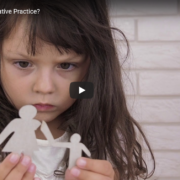Does Florida Recognize Legal Separation?
Many jurisdictions require spouses to be legally separated for a certain period of time (oftentimes about 6-12 months) before they can get a divorce.
Florida does not have such a requirement.
However, there are many couples out there who wish to go through a “trial separation” without taking the leap of divorce. Many want an interim step short of divorce to maintain the possibility that the parties can work things out later and reconcile. Does Florida have any mechanisms to provide protections to spouses and children during a trial separation?
Florida has two ways in which a couple could go through a trial separation without committing to divorce but with rules in place.
The first possibility is the drafting of a post-nuptial agreement. A post-nuptial agreement is very much like a prenuptial agreement, except that it is signed during, rather than before, a marriage. Most people think a post-nuptial agreement will only address the events that occur if spouses divorce (such as how property will be divided, whether and how much alimony will be awarded, etc.). However, it can also address rules for the relationship during the marriage, such as how marital funds will be spent, and how the spouses will treat one another.
For anyone considering a post-nuptial agreement, I urge them to utilize the collaborative process, in which (i) a neutral facilitator is used to help the spouses focus on what is important and improve their communication skills and (ii) a financial professional helps the spouses budget for the future and increase the understanding of their finances. Also, as I have previously written regarding prenuptial agreements, a lawyer who is not utilizing the collaborative process to help parties reach a prenuptial or post-nuptial agreement is just asking for a malpractice lawsuit.
The second possibility for a trial separation is an action known as “Support Unrelated to Dissolution of Marriage.” As the name suggests, this allows a married person to receive spousal support and child support without ending their marriage. This type of action even permits a parenting plan to be created which addresses time-sharing (formerly known as child custody) and the ability to make decisions concerning a child’s health and well-being.
For many of the same reasons that I urge parties considering a post-nuptial agreement to utilize the collaborative process, I strongly suggest that clients who want support unconnected with dissolution of marriage to settle within the collaborative model. There is a reason that the client is not asking for divorce, and it usually has to do with maintaining the possibility of reconciliation. The collaborative model gives spouses a better chance of reconciling, as they are not engaging in destructive court battles and the facilitator is increasing their communication and co-parenting skills.
If you have questions regarding post-nuptial agreements, support unconnected with dissolution of marriage, or the collaborative family law process, schedule a consultation with Adam B. Cordover, a Tampa Bay Family Law Attorney, at (813) 443-0615 or fill out our contact form.



Trackbacks & Pingbacks
[…] Read more at ABC Family Law Blog. […]
Leave a Reply
Want to join the discussion?Feel free to contribute!